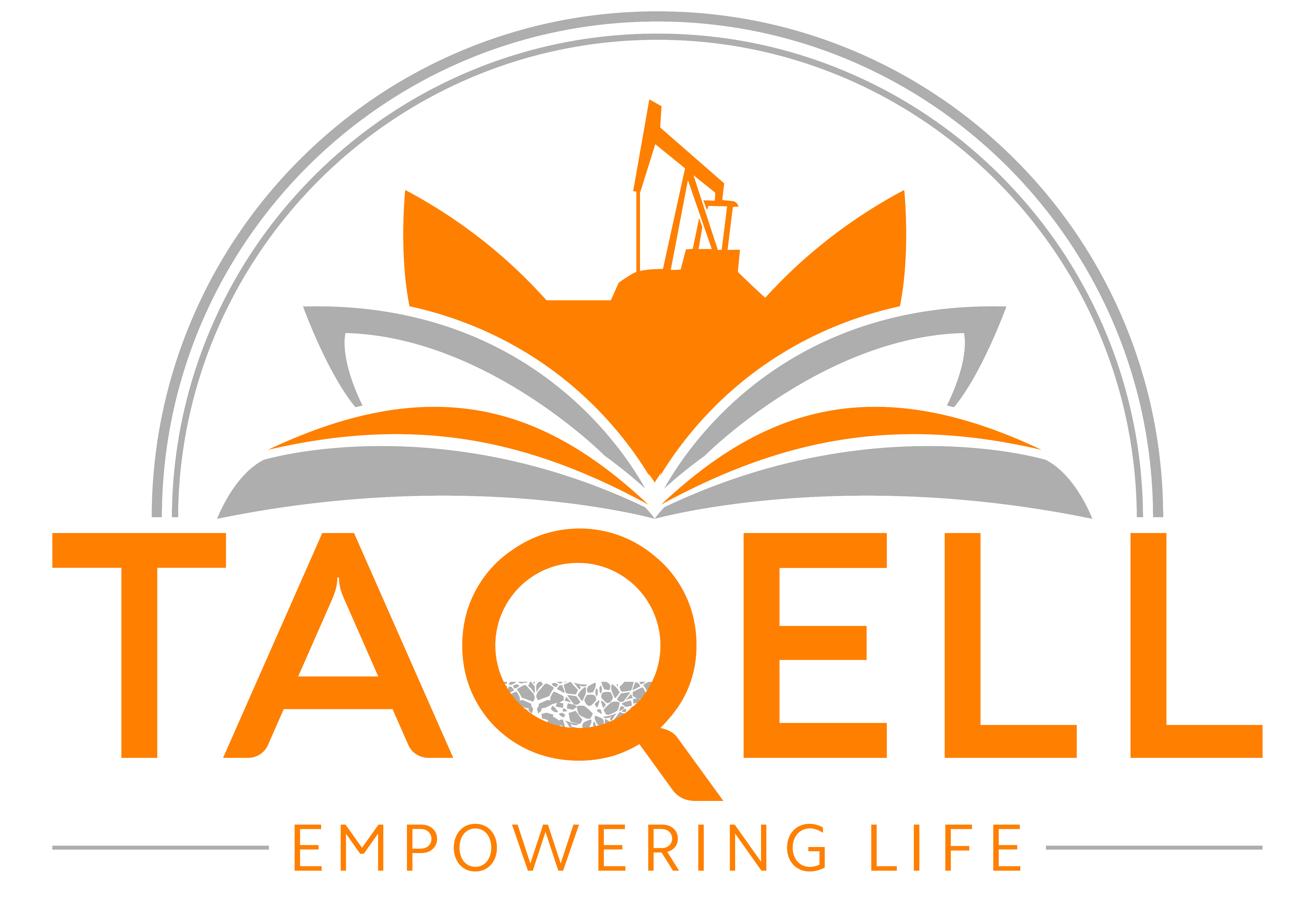Course Overview
The Geotechnical Laboratory Training course at TAQELL is designed to provide participants with hands-on experience in conducting essential geotechnical tests. Over the span of 5 or 6 days, participants will gain practical knowledge in soil and rock testing, understand the importance of accurate data collection, and learn how to interpret test results to inform engineering decisions.
Course Format
• Duration: 5 or 6 days
• Mode: Offline (In-person)
• Location: TAQELL Training Facility
• Instruction: Experienced geotechnical engineers and laboratory technicians
Detailed Course Content
1. Classification Tests
Classification tests are essential for identifying and categorizing soil types based on their physical properties. These tests include grain size analysis using sieve and hydrometer methods to determine particle size distribution, Atterberg limits tests (liquid limit, plastic limit, and shrinkage limit) to classify fine-grained soils, measurement of specific gravity to assess soil particle density relative to water, and application of the Unified Soil Classification System (USCS) to categorize soils practically. Participants will gain proficiency in conducting these tests, interpreting results accurately, and applying standard methods to classify soils effectively.
2. Engineering Property Tests
Engineering property tests evaluate soil behavior crucial for design and construction. Tests include the Compaction Test (Standard Proctor and Modified Proctor) to establish optimal moisture content and maximum dry density, Permeability Test (Constant head and Falling head) to measure soil hydraulic conductivity, Consolidation Test (Oedometer) to assess compressibility and consolidation rate, Direct Shear Test to determine shear strength parameters under controlled conditions, and Triaxial Test to analyze soil strength and deformation characteristics under varying stress states. Participants will develop hands-on experience conducting these tests and interpreting results to inform geotechnical design effectively.
3. Rock Testing
Rock testing is crucial for projects in rock engineering, such as tunnels, foundations, and slopes. Key tests include the Uniaxial Compressive Strength (UCS) Test for measuring rock compressive strength, Point Load Test for quick assessment of rock strength index, Brazilian Tensile Strength Test using disk-shaped specimens to indirectly measure tensile strength, Slake Durability Test to evaluate resistance to weakening from wetting and drying cycles, and P-wave and S-wave Velocity Tests for assessing rock elastic properties via seismic wave velocities. Participants will gain proficiency in sample preparation, conducting these tests, and interpreting data to assess rock properties and behavior effectively.
4. Soil Sampling and Logging of Rock Cores
Accurate soil sampling and detailed logging of rock cores are crucial for reliable geotechnical investigations. Soil sampling methods covered include techniques for obtaining undisturbed and disturbed samples such as Shelby tube sampling, split-spoon sampling, and bulk sampling. Rock core logging procedures encompass identifying rock types, documenting discontinuities, and measuring core recovery and RQD (Rock Quality Designation). Borehole logging involves systematic documentation of soil and rock layers encountered during drilling, including descriptions of stratigraphy, color, texture, and other pertinent features. Participants will grasp the significance of proper sampling techniques, acquire skills in precise rock core logging, and gain proficiency in interpreting borehole logs for comprehensive geotechnical analysis.
Learning Outcomes
Upon completing the Geotechnical Laboratory Training course, participants will be able to:
• Conduct a wide range of soil and rock tests with confidence.
• Interpret test results accurately to inform geotechnical design and construction.
• Implement best practices for soil sampling and rock core logging.
• Understand the importance of data quality and consistency in geotechnical investigations.
• Prepare detailed test reports and documentation for engineering projects.
Who Should Attend?
This course is ideal for:
• Geotechnical engineers and technicians.
• Civil engineers involved in foundation design and construction.
• Laboratory technicians and managers.
• Engineering students and recent graduates seeking practical experience.
• Construction project managers and site supervisors.
Course Benefits
• Expert Instruction: Learn from experienced professionals with extensive laboratory and field experience.
• Hands-on Experience: Gain practical skills through hands-on testing and real-world applications.
• Comprehensive Curriculum: Cover a wide range of geotechnical tests and techniques.
• Networking Opportunities: Connect with peers and industry professionals.
• Certificate of Completion: Receive a certificate to demonstrate your skills and knowledge.



